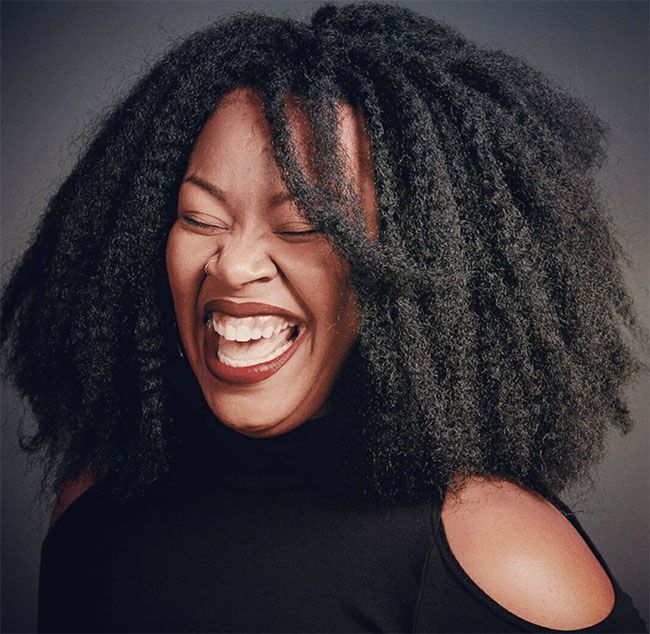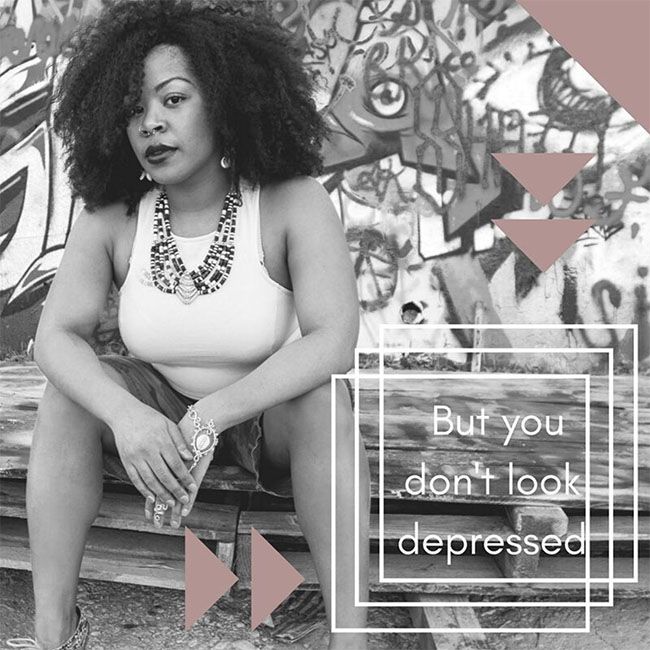Davia, Creator of Redefine Enough & The Affirm Podcast, is a trauma counselor and mental health therapist based in Austin, TX. She is such a positive spirit with an incredibly infectious personality, and she prides herself on making mental health discussions relatable and engaging. We sat down recently and chatted about all things mental health, self-care, creating healthy boundaries, and the demystification of mental health. Having conversations like these are so necessary because women, especially, are taught not to discuss their feelings. The DSM-IV definition of mental health has also changed drastically over the years, as it used to only encompass a small array of emotions. The case studies and research used in previous studies were geared towards middle aged white women, with all testing conducted by middle age white men, effectively leaving out women of color altogether.
Thanks to Davia, therapists like her, and the overall increase of access to educational resources for our emotional health, we can change the narrative on how to cope with our emotions and live our best lives. Peep our discussion below!
Lauren: So how did you come up with the concept and the name behind Redefine Enough? What inspired your name?
Davia: This came from my personal journey that I knew was similar to other women. I did so much, but I felt like it was never good enough for other people, and I had all of these expectations that were being imposed on me, and some I did impose on myself. I got to the point where I said screw that? I am good enough, and I am just going to be me, and you need to take it or leave it.
Now, that’s not to say that I feel that way all of the time. As a human, I still get nervous about being vulnerable and transparent, but I think my mental health has grown. I’m going through more as a trauma therapist, but being able to be vulnerable and build strong relationships has been really freeing. I wanted Redefine Enough to have a community that says you are enough and we got you.
L: It’s like you have created this sacred space, where people can come and realize they aren’t by themselves. Can you speak more on how your environments can play a role in mental health and mental illness?
D: Whenever I hear the phrase you are a product of your environment, I think it is half true and half false. You can put two people in the same exact environment and they can respond totally different, and some of that just means a different level of resiliency. But I do want to be careful about my language. Our environments do impact us, but we can make shifts as we grow older. I think it is really important, once you are in a place where you are actually safe, that you learn what your needs are. Noticing when you feel overwhelmed and uncomfortable, what makes you feel safe. Take notes and be aware of those things that bring you good emotions. So, if you say when I’m around this person I experience joy, take heed of that, and recognize the goodness of having that in your space. Just being mindful of small things in your environment, whether that is spatially or emotionally.
L: So with self-care, what is positive self-care and what is negative self-care?
D: So therapy is positive self-care, and sometimes people try to substitute positive self-care in place of therapy. When we break it down, we think about energy drainers and energy gainers. That’s how I think about self-care. What gives you energy? What is restoring you? More than likely it is not about that bottle of wine after work. But I would say to go deeper with self-care. Don’t get it twisted though. Sometimes, self-care just means saying no, implementing a boundary, and saying yes to resting and relaxing. I think once we get stuck there in that “relaxation”, it can become an issue because we are just treating the surface. Deep healthy self-care is figuring out what restores you and what puts you at peace. That means learning healthy boundaries, learning how to say no to people also, learning how to fuel yourself with the right foods and deciding if something is a healthy coping skill or an unhealthy skill. Even having a clean room makes a difference in how you feel. Just remember, everyone’s self-care plans look different because we all have different needs.
L: Is it also ok to take a day off when you feel like crap?
D: Of course, take your time to feel it! You don’t have to rush through your feelings, and you don’t have to rush to feel good as well. So, we live in this “I need a quick fix society” where it’s like I dealt with it, so it should be gone by tomorrow, and that’s a very high expectation for us to impose on ourselves. We don’t have to rush to be ok. I don’t want someone to stay in that place though. It’s ok to honor when you’re sad or angry or hurt.
L: I do this all the time too, where I’m like “ok, felt it, and I’m moving on!”
D: And then we get mad about it when we aren’t over it!
L: Mental health does not equal mental illness right? So, say someone is realizing that they need a bit of support on their mental health journey, what are some signs they should look for when finding a therapist? How do they even know that therapy is ok?
D: Well, I will say is if you have not figured out a healthy way to get to your desired area of life, then at that point it is ok to reach out to someone else that has an actual background to support you and with that, I always let people know that with therapy there are so many different options. There are so many different forms and ways that people can help you, that it doesn’t just have to be mental health in regard to navigating depression, anxiety, or a diagnosis. If you are feeling stuck, and you want to figure out how can I break this pattern that I have been dealing with my whole life, that’s therapy. It’s helping you get your best life.
L: Which is positive self- care!
D: Right, See! Thank you!
L: I think you hit on something really huge when you mentioned having a friend to talk to or reaching out for support from a therapist. Being vulnerable with somebody can be super scary for people, so can you speak to that? Why is vulnerability something that freaks people out?
D: It does take a level of vulnerability to just call up a friend, whether you are having a good day or a bad day. I think our society is so focused on having superficial relationships, and there is a fear of judgment because we put only good things on social media. We don’t talk about, oh I got laid off, someone broke up with me, etc., so as a result, we hide those things, because we learn they aren’t socially acceptable. If we could tap into the courage to just be human and vulnerable, there can be so much freedom there, because we are being reminded that we aren’t the only one. Vulnerability connects us and frees us from those unhealthy thoughts.
L: So, should someone get a therapist or a life coach?
D: Lol! I will always be pro therapy, but you have to get the right therapist. I do get that question a lot and usually what I ask people is what are you seeking? For some people, I can just tell they are scared of therapy, and I’m like don’t be scared boo. We don’t bite. When thinking of therapy though, a therapist can do what a life coach can do and more.
L: Let’s talk about your podcast “Affirm”. What sparked the idea? How is it going?
D: So, I always knew that I wanted to make mental health a normal topic in households of color. And what better way to do this than from someone who has studied this and experienced it. I can bring my personality to talk about it in a way that isn’t so frightening. I wanted a way to talk about mental health, because we all have it and it shows up in each and every one of our lives, so let’s put it on the table instead of it being the elephant in my room.
L: Why are affirmations important? What does it do to someone’s sense of self if they can dedicate time to be with themselves?
D: For me personally, affirmations are a reminder of the things I can seldom forget or diminish about myself. And so, right now. I have one on my desk that I can say whenever I am beating myself up about something, and then I can look to something and it helps ground me and remind me. For me, it’s a positive reinforcement for me to get it from my head to my heart. Not everyone is wired that way though, some people can care less about affirmations. But for me, it’s a reminder of who I am and who I am aspiring to be and giving myself some compassion.
L: Do you have an affirmation for the Naturally Curly readers?
D: The affirmation would be two words: I AM. With those two words, there is power in the fact that you are here, you are alive, and breathing, and these words capture everyone and the beauty that we all share.
Thank you, Davia, for chatting with me and sharing your words of wisdom with the Naturally Curly community! I always leave our chats so inspired, and a little bit more self-aware than before, and hopefully our readers feel the same. To keep up with Davia and her work, check her out at www.redefineenough.com! ( I hear she will be embarking on a yoga certification next!!!”>
Naturally Curly, how do you practice self-care?
Share your favorite methods with us on Facebook!
For more on my mental health journey, follow me on Instagram @whtsuplauren!



